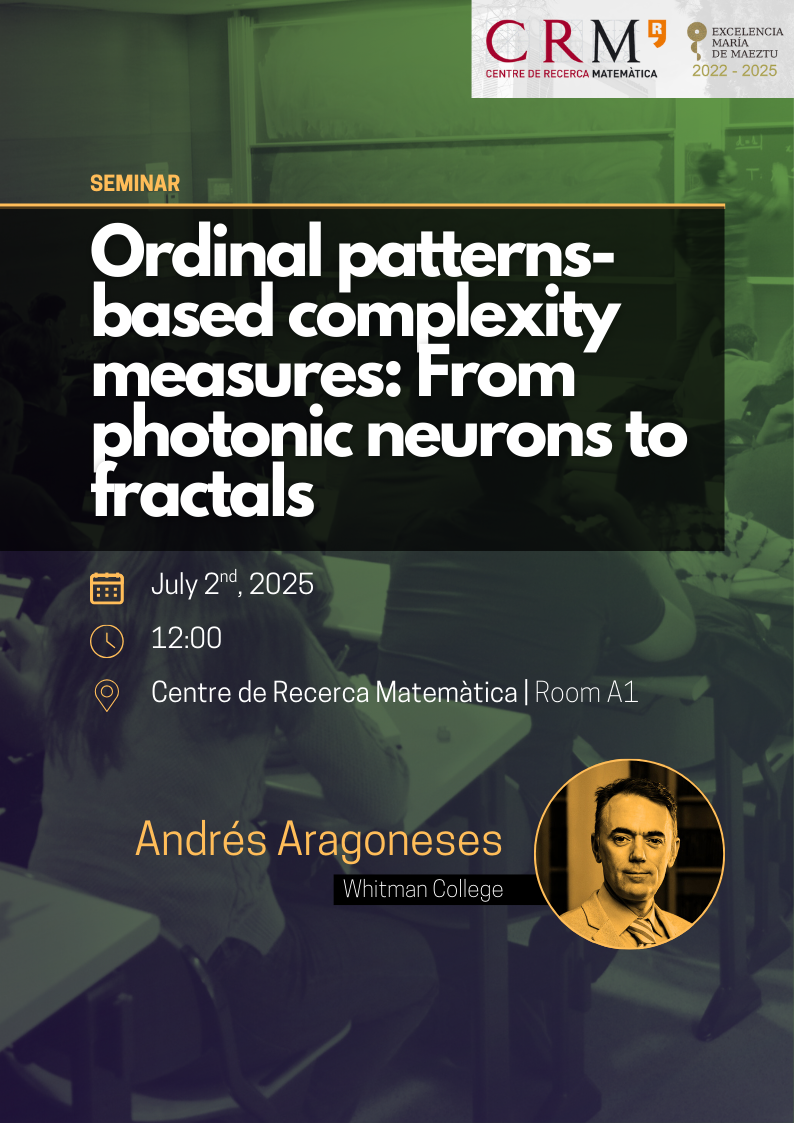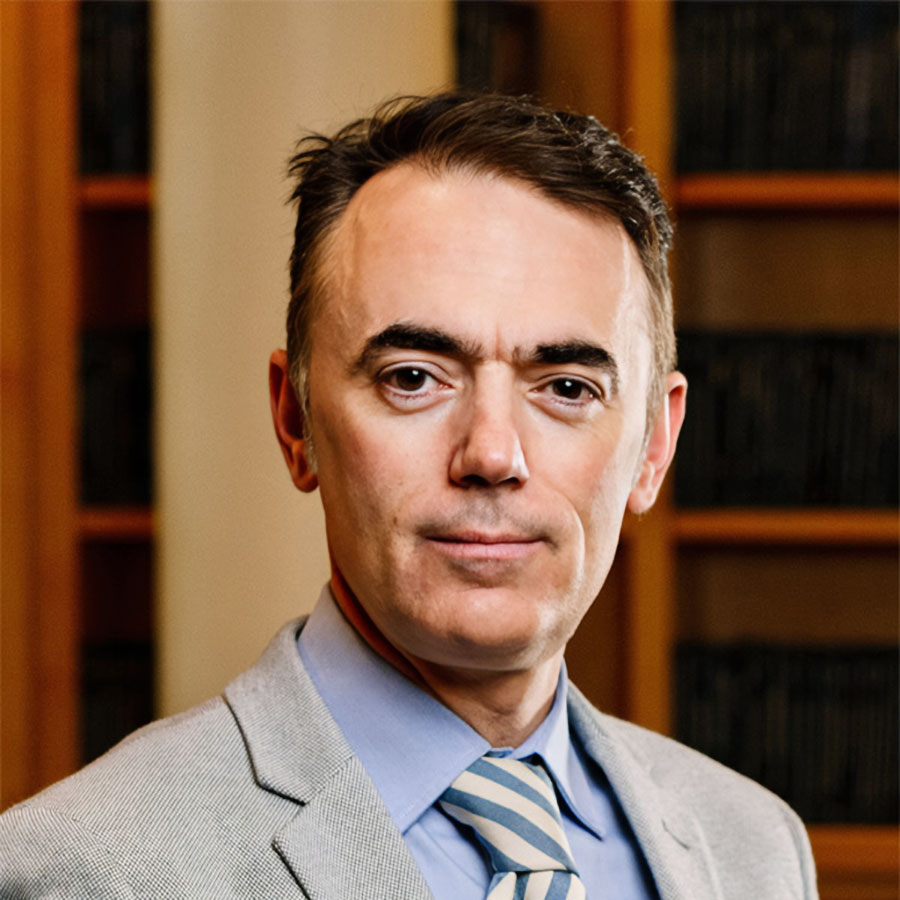SEMINAR
Ordinal patterns-based complexity measures: From photonic neurons to fractals
Andrés Aragoneses
Whitman College
SEMINAR | Ordinal patterns-based complexity measures: From photonic neurons to fractals
Sign inTime: 12h
Room: A1 (CENTRE DE RECERCA MATEMÀTICA)
Free attendance not necessary to register.
abstract
Ordinal patterns-based complexity measures: From photonic neurons to fractals
ABSTRACT: In complex dynamical systems, noise, feedback, external forcing, and time delay shape the behavior that can range from regularity to high-dimensional chaos. Unveiling signatures of determinism in the time series of a variable can be challenging. Based on ordinal patterns techniques that aim at extracting temporal correlations in complex dynamics I will describe new complexity quantifiers that allow us to distinguish and characterize families of chaos. These techniques also correlate the dynamic behavior with dynamical and temporal approximate symmetries. I will show examples ranging from experiments with photonic neurons to mathematical iterative models.
speaker
Andrés Aragoneses
Whitman College
Professor Andrés Aragoneses is a physicist doing experimental and numerical research in photonics, complex dynamics, and chaos.
He got his PhD in 2014 at the University Politècnica de Catalunya (Spain) with title “Experimental study of feedback-induced dynamics in semiconductor lasers: from symbolic analysis to subwavelength position sensing”. In 2014 he went to Duke University (NC) to do research at Professor Daniel J. Gauthier’s laboratory on Quantum Key Distribution. From Duke he moved to to Carleton College (MN) in 2016 as Visiting Assistant Professor, where he performed, un undergraduate students, numerical research in chaos and physics education research. In 2018 he moved to Eastern Washington University as Assistant Professor. There he setup a laboratory and continued his experimental research on complex dynamics of diode lasers, as well as in studying ways to characterize and distinguish families of chaos.
He is currently doing experiments in his laboratory (Hall of Science 254) at Whitman College (since 2023), and numerical research in chaos.
His research interests have moved from Cosmology to electric properties of dielectric materials, to complex dynamics in photonic systems, chaos, quantum key distribution, or physics education.
|
For inquiries about this event please contact the Scientific Events Coordinator Ms. Núria Hernández at nhernandez@crm.cat
|


